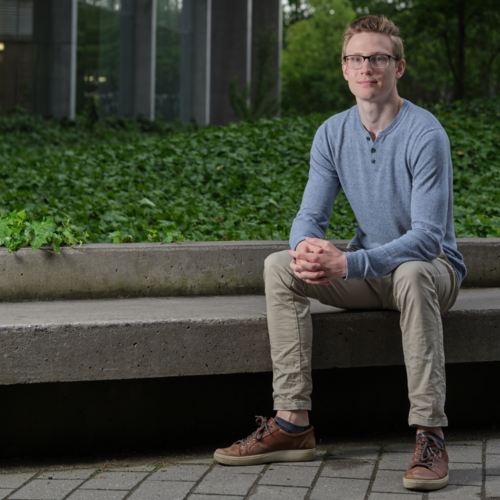Quantum theory, the physics of the very small, helps us to understand nature and our world by explaining and predicting the behaviour of atoms and molecules. Researchers at the Institute for Quantum Computing (IQC) are interested in what comes after quantum theory, specifically the possibility of a broader theory that replaces quantum theory as a more complete description of nature.
In 1900, while studying radiation, Max Planck observed that energy could behave in a way not consistent with classical physics. Twenty-years later a more fulsome understanding of matter emerged. Based on the research of physicists like Bohr, Schrödinger, and Heisenberg this new theory, quantum theory, accounted for the unpredictable nature Planck observed two decades before. In the same way that quantum physics built on our understanding of classical physics, a novel, post-quantum theory may build off our current understanding of quantum physics.
As a master’s student with IQC and the Department of Physics and Astronomy, Michael Grabowecky was interested in exploring any potential deviations from quantum theory and identifying restrictions on any new potential theories.

“We do not assume any particular theory to be true before conducting the experiment. We want to make as little assumptions as possible, and we definitely don't want to assume that quantum mechanics is true,” said Grabowecky. “The whole purpose of these kind of experiments is to let the statistics and the photons speak for themselves.”
To minimize the experimental assumptions and take a theory-agnostic approach, the team used the framework of generalized probabilistic theories (GPTs). GPTs are operational theories in which classical and quantum physics are special cases. The team used GPTs because they require minimal assumptions and can be used to avoid any inherent quantum biases when conducting an experiment.
A digital computer stores and processes information using bits, which can either be 0 or 1. A quantum bit or qubit, can be both 0 and 1 and is a two-level system. In this experiment the team investigated a three-level system, where the bits have three degrees of freedom rather than two. The quantum analog of a three-level system is called a qutrit.
“We prepared a three-level system in a wide variety of ways and on each of those preparations, we performed a large number of measurements. The statistics associated with these random preparations and measurements were used to construct a physical theory describing our system,” said Grabowecky.
The experiment found that quantum theory works well in describing the obtained data, but a broader theory beyond quantum may be possible. Furthermore, this research identified quantitative boundaries on the scope of possible deviations from quantum theory for three-level systems.
Grabowecky, now the Quantum Technology Lab Coordinator at IQC, is excited by the potential of this research. “Quantum theory does a great job at describing our three-level system and the world around us, but there is potential for other theories to fit in. This research gives us room to find other theories that may explain some phenomenon a little better than quantum theory.”
The experimental data sets from this research can be used to test future theories that may supersede quantum theory and advance fundamental research.
Experimentally bounding deviations from quantum theory for a photonic three-level system using theory-agnostic tomography by Michael Grabowecky, Christopher Pollack, Andrew Cameron, Robert Spekkens, and Kevin Resch was published in Physical Review A on March 10, 2022.
This research was supported in part by the Canada First Research Excellence Fund (CFREF).
La traduction française de cet article sera bientôt disponsible.